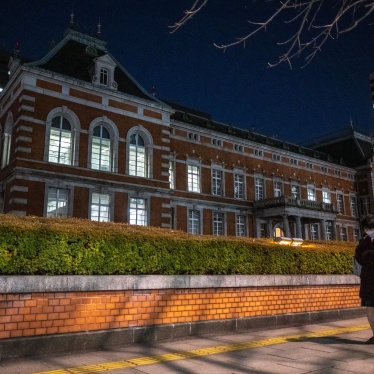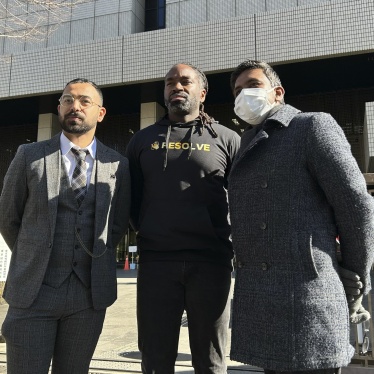Criminal cases in Japan that go to trial have a 99.8 percent conviction rate, and the trial of Yamato Eguchi, a former lawyer who was arrested and charged in 2018 and later convicted, was no exception. Humiliated and abused through days of relentless interrogations, Eguchi brought a lawsuit against the government, demanding state redress for what he endured while in custody.
The public caught a rare glimpse of Japan’s “hostage justice” system in action in January when a portion of the video recordings of Eguchi’s interrogations were played in court and released on YouTube on January 18, 2024. The 13-minute video (with English captions) shows the prosecutor showering abusive language at Eguchi, who remains silent.
“You’re a brat, aren’t you? You’re like a child,” the prosecutor from Yokohama District Public Prosecutors Office says in the video. “You’re just annoying. You’re just a pain in the ass. That’s all.”
Eguchi, who was accused of inducing his client to make a false statement regarding a car accident, had said that he was innocent and expressed his intention to exercise his right under the Japanese constitution to remain silent. Eguchi’s lawyer was not allowed to be present.
However, like in many other cases, the interrogation continued for 21 days, over a total of 56 hours, as the prosecutor insulted Eguchi to fuel his anxiety. At one point he pulled out Eguchi’s middle school grades. “It looks like you weren’t very good at math, science or any science stuff,” the prosecutor said. “[Y]our logical sense is a bit off.”
Eguchi’s case illustrates the current state of “hostage justice,” in which authorities coerce suspects to confess through denial of bail and prolonged interrogations without the presence of lawyers.
The abusive practices Eguchi experienced have torn apart countless lives and families and resulted in numerous wrongful convictions. Japan’s Diet should urgently reform the criminal justice system. This includes ensuring the internationally protected right against self-incrimination and allowing lawyers to be present during questioning. Furthermore, the authorities should ensure that suspects have the right to apply for bail during pre-indictment detention and reform the bail law to bring it in line with international standards of presumption of innocence and individual liberty.
Public outrage over the Eguchi video might just spark genuine reforms in Japan’s criminal justice system.









